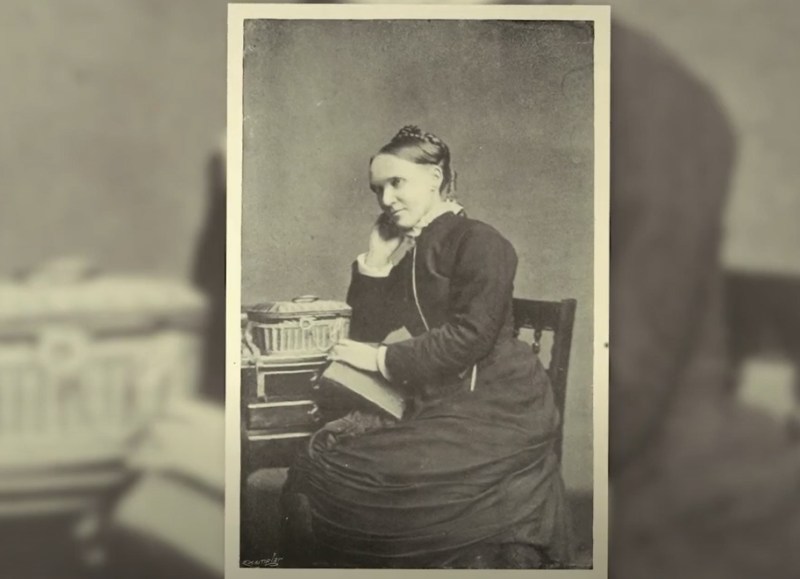Dark Days When No One Can Work
Sign up for a six month free
trial of The Stand Magazine!
One of my favorite movies of all time is the original version of The War of the Worlds, starring Gene Barry and Ann Robinson. Based on the 1897 novel by H.G. Wells, the film portrays the invasion of earth by malevolent Martians (as if there are any other kind.)
As an 8-year-old boy who had already, by that time, watched my fair share of World War 2 movies, I had grown up thinking the U.S. military was invincible. So, it was breathtaking to watch a depiction of the complete annihilation of our forces––and everyone else’s on the planet. (Spoiler alert: The Martians still lose in the end.)
Watching The War of the Worlds was the first time I had ever considered the possibility of the world ending––and ending badly at that. (In my own defense, as I said, I was only 8. How many kids that young think about it?)
Perhaps it is human nature to assume that what is today will still exist tomorrow. It’s as if we think life cannot abruptly turn to the right or the left and leave a life - or a land - changed forever.
Personally, I don’t believe an alien invasion is anything to worry about. But sudden economic collapse? Revolutionary madness in the streets? A war with China? Yes, yes, yes. All possible––maybe even probable––within my lifetime.
So, how do believers in Jesus Christ approach the difficulties and dangers of living in a fallen world?
Who’s in control of this mess?
Of course, if we are going to get involved in the world around us, we must start by understanding who is truly in control of things. In John 9:1-5, there is a revealing dialogue between Jesus and His disciples when they came upon the tragic figure of a man born blind. In this passage, the disciples asked Jesus, “Who sinned, this man or his parents, that he would be born blind?”
It is not unusual for people to ask questions like this. Humans fear catastrophe, which can take many forms, precisely because it represents a destructive power they cannot control. If people can explain the cause of catastrophe, that offers a sense of operational influence. That is, if “x” causes catastrophe, then I can avoid disaster if I simply avoid “x.”
In the case of the man born blind, this appears to be the thinking of the disciples (and the culture in which they lived.) If this man was born blind because of sin - either his or his parents - then the disciples would be able to avoid such infirmities if they avoided sin, or at least the really, really bad ones.
That’s some pretty messed-up theology, but Jesus avoided that discussion altogether and instead pointed to the overall purpose of God in our lives. The man’s wretched condition existed “so that the works of God might be displayed in him.”
Jesus turned the disciples away from a focus on human causality to one that fixed the attention on God. Life isn’t so much a matter of what we have done or not done; what’s important is what God is doing. Christianity is not centered on human works first and foremost, but on faith. Obviously, when you’re neck-deep in a disaster - or, like AFA and its supporters, fighting for the soul of our nation - it’s a difficult thing to keep our focus on the Lord. God, what are You doing in these circumstances? What will bring You glory in this situation?
Passive or active
Yet there is a theological and ethical difference between saying “God is in control” and saying “God will take care of it.” The two statements are not necessarily the same.
The first statement properly orients the Christian toward faith in God, but the second statement runs the risk of passivity.
I would imagine that most followers of Christ are not apathetic about human sin and suffering. In fact, we often take notice of it, verbalize concern, and even complain about it. But if we are inactive in the face of it, how is that fundamentally distinct from indifference?
After all, inactivity can allow plenty of mischief to spread. As the old adage says, “The only thing necessary for the triumph of evil is that good men do nothing.”
Instead, Scripture teaches that there is a mysterious interplay between the working of our sovereign God and the faithful efforts of His people. Although it might be difficult to tell where one stops and the other begins, the Bible indicates that, when it comes to the world, a partnership is in effect.
We should note in John 9 that Jesus turned the discussion back to works pretty quickly because it’s not just about God being sovereign. In fact, after saying the blind man’s condition was “so that the works of God might be displayed in him,” Jesus blended the concept of works so that it was clear that it was a team effort. He said that “we must work the works of Him who sent Me.”
Too dark to work?
Then Jesus added a statement in John 9 that is a bit puzzling. After exhorting His disciples to work the works of God, He said we are to work “as long as it is day; night is coming when no one can work” (vs. 4).
What does this mean? First, everyone living in ancient Israel understood that, in the natural world, daylight meant you could work; darkness meant you couldn’t. Lamplight was generally not sufficient for getting much done. If you wanted to be productive, you conducted your business when the sun was shining.
Second, Jesus uses that fact of nature to make a spiritual point. When we’re doing God’s work, there’s often a season when we can get things done, and then sometimes there is a season when we cannot. Jesus was undoubtedly warning them that, when He was arrested, brought to trial, convicted, and crucified, the disciples would not be able to walk the streets preaching, teaching, and healing the sick.
Third, as is typical of the Lord’s teachings, there is surely a warning here to the Christians who would follow in the centuries to come. Sometimes the circumstances of life will allow us to publicly do the faithful work of the Christian, but sometimes darkness becomes so strong that that work is curtailed.
For example, sometimes circumstances require a tactical retreat, as when Paul was lowered in a basket from the city wall so he could escape Damascus (Acts 9:25; 2 Corinthians 11:33).
Today in many Muslim countries or those controlled by communist dictatorships, Christians must be “shrewd as serpents” (Matthew 10:16) in how they conduct ministry.
We are not to be discouraged during such times, for as Jesus says in John 9, He is the Light of the world (vs. 5). Darkness will not––and cannot––prevail forever.
This makes it all the more critical that Christians in America, who are currently free to practice their faith unhindered and out in the open, behave as the salt of the earth and light of the world (Matthew 5:13-16).
As Paul says, Christians are to be about the business of “making the most of your time, because the days are evil” (Ephesians 5:16).
At the end of the day, it’s not Martian machines wielding death rays that we have to fear, but passivity, negligence, and inactivity in the face of growing darkness and corruption.

Sign up for a free six-month trial of
The Stand Magazine!
Sign up for free to receive notable blogs delivered to your email weekly.


















